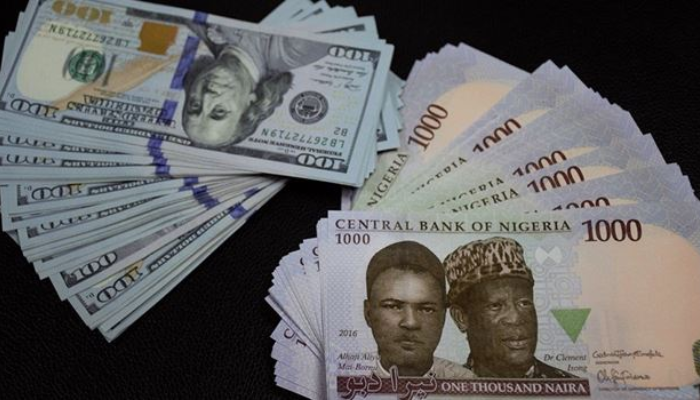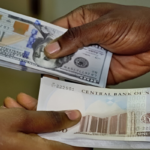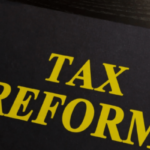The naira appreciated to an eight-month high of N1,474.78 per dollar at the official foreign exchange market on Friday. The development follows a series of fiscal and monetary measures by the government, leading to a reduced demand for dollars.
Decline in petrol imports and forex pressure
The naira traded at N1,485.99 per dollar on 3 June 2024 at the Nigerian Foreign Exchange Market (NFEM). The currency has strengthened due to multiple factors, including an increase in local refining capacity, higher foreign exchange inflows, and policy interventions by the Central Bank of Nigeria (CBN) over the past 17 months.
Read also: CBN mandates two-year audit for LGAs’ revenue access
The 650,000-barrels-per-day Dangote Petroleum Refinery began refining petrol in September 2024. By January 2025, Nigeria’s petrol imports had dropped to their lowest in eight years, reaching 110,000 barrels per day, according to data from Bloomberg and Vortexa Ltd. A report by PwC estimates that petrol imports account for 22–25 per cent of Nigeria’s forex demand. With fewer fuel importers seeking dollars, pressure on the exchange rate has reduced.
Forex inflows and government borrowing
Foreign exchange inflows into Nigeria in the first quarter of 2024 were 136 per cent higher than the total inflows recorded in 2023. The federal government raised over $900 million from a dollar bond in 2024 and launched a dual-tranche Eurobond offering in December 2024 under its Global Medium Term Note Programme to finance the country’s fiscal deficit.
The Eurobond issuance consisted of a 6.5-year bond with a coupon rate of 10.125 per cent and a 10-year bond at 10.625 per cent. Wale Edun, Minister of Finance, stated that the federal government aimed to secure $2.2 billion in external financing through Eurobonds and Sukuk bonds.
Read also: World Bank commits $1.2 billion to girls’ education in 18 Nigerian states
CBN policies and market stability
The CBN has introduced policies to improve forex market liquidity and stability. The Electronic Foreign Exchange Matching System (EFEMS), introduced in December 2024, was designed to enhance transparency. Last week, the CBN issued a new Foreign Exchange Code to regulate market participation.
The naira gained 1.67 per cent after Thursday’s trading, strengthening to N1,485.95 from N1,510.72 on Wednesday, according to FMDQ Securities Exchange Limited. The black market also recorded a 0.9 per cent appreciation, with the dollar quoted at N1,620 on Friday, compared to N1,635 on Thursday.










